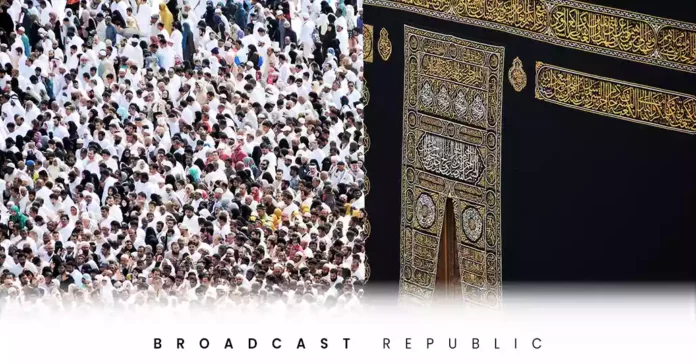In a significant move towards facilitating the sacred pilgrimage, designated branches of banks have initiated the process of accepting applications for Hajj 2024. With guidance from the Ministry of Religious Affairs and Interfaith Harmony, 15 branches across the country are now receiving applications for the government’s Hajj scheme until December 12.
Anticipating a pilgrimage involving approximately 197,201 Pakistanis next year, the government has implemented a noteworthy reduction of Rs100,000 in Hajj expenses. A historic shift unfolds as the caretaker government introduces a short Hajj package for the first time, bringing a progressive change. Notably, women now have the unprecedented opportunity to perform Hajj without the traditional requirement of a male companion.
Under the government scheme, 89,605 Pakistanis are slated to perform Hajj in 2024, with an additional 25,000 seats available on a first-come, first-served basis under the sponsorship scheme. The Ministry of Religious Affairs spokesperson announced that applications under the official scheme will be accepted until December 12 at the designated banks. Furthermore, the deadline for submission, even for those without passports, extends until December 16, allowing a broader range of applicants.
This groundbreaking development emphasizes inclusivity by allowing women to embark on the sacred journey without a mehram for the first time. The sponsorship scheme allocates 25,000 seats on a first-come, first-served basis, with a lucky draw determining the recipients under the regular Hajj scheme.
To internationalize the annual pilgrimage, applicants residing abroad are required to submit applications with dollars. Prioritizing familial ties, the Religious Affairs Ministry exempts applicants and their dependents from the lottery, fostering a shared spiritual experience for families during this sacred journey.
Revised Hajj policies include accommodating individuals under the age of 10 to fulfill their pilgrimage obligation and offering flexibility in service personnel for those over 80, catering to the diverse needs of the pilgrim demographic.
To enhance pilgrim welfare during their stay in Saudi Arabia, organizers are mandated to enter agreements with pilgrims, ensuring the provision of local assistance services. Violations of these contractual obligations may result in penalties and the blacklisting of the Hajj organizer, underscoring the government’s commitment to pilgrim safety and support.
As the application process unfolds, interested individuals can download the Hajj application from the religious affairs website, marking the beginning of a transformative journey for thousands of pilgrims.

